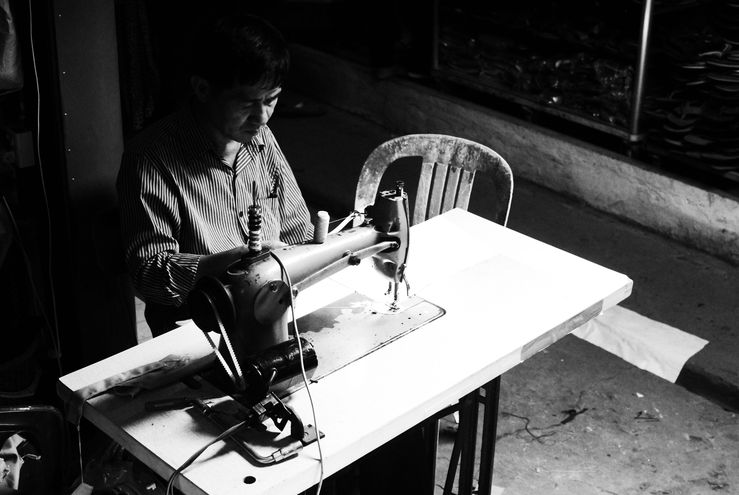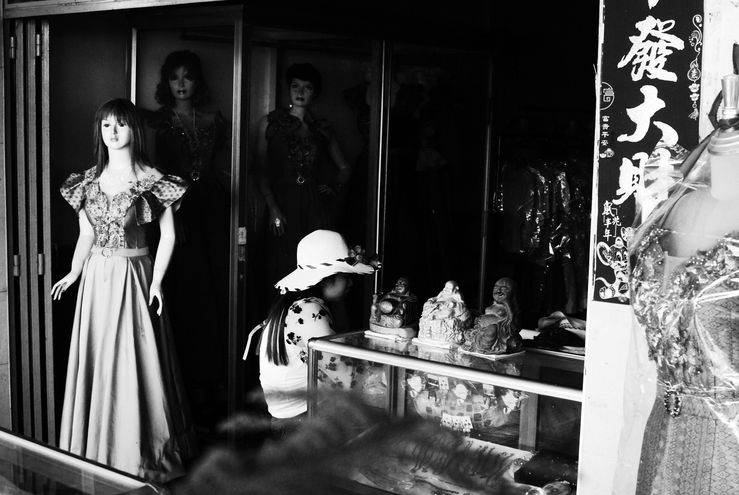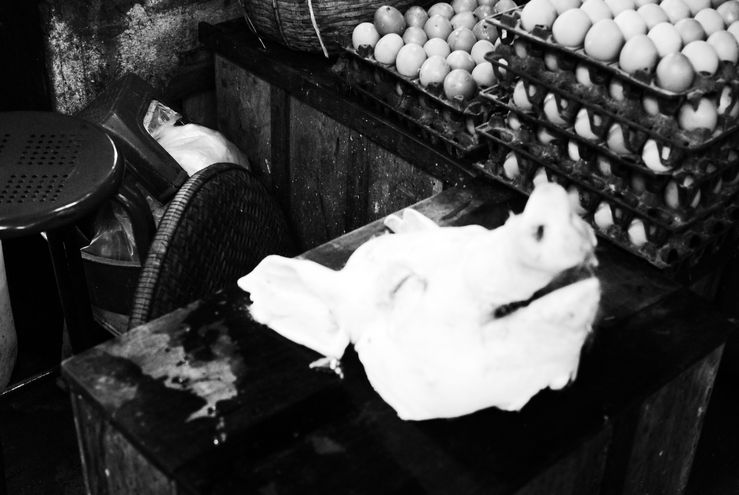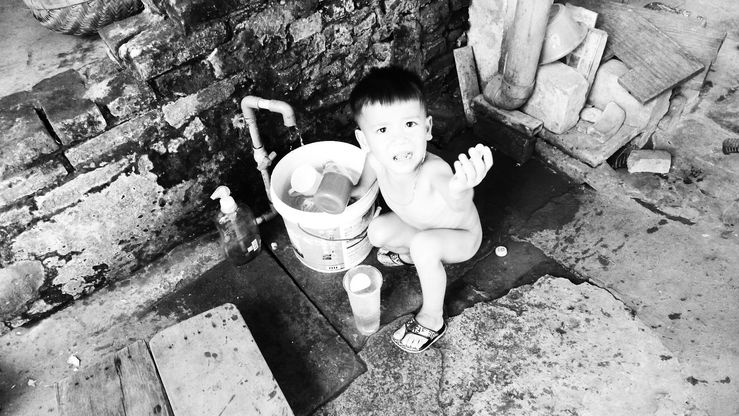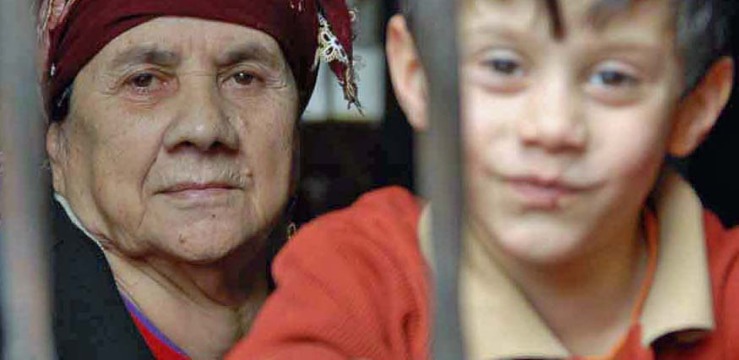Other looked on with pure heart awareness. A woman named Raven (Corvus Corex) shared a talk story.
One day I returned to the Taos Pueblo. It was over 100.
Dry dusty silent heat.
“Find something that speaks to you,” said a Tiwa Native American woman.
I walked past their cemetery where 150 women and children died when the church was burned during a Hispanic and Pueblo revolt in Taos after the American occupation in 1846 by U.S. forces. Wooden crosses scarred by sun, heat and dust stood in haphazard rows on brown ground. Plastic flowers. Names of children and elders chiseled in wood. A black and white rosary draped on a small cross marked a burial ground.
“Due to shortage of space we bury the new dead on top of the old dead,” said the Tiwa woman.
Hard soil. Wooden crosses stood at angles in the heat. White black and brown crosses faded in sun. Names, ages, children, parents, flowers, and rosaries slept inside a small adobe wall. The old bell collected dust in the burned out charred remains of the church steeple.
The screams of the trapped women and children echoed as the attackers poured their modern civilization of guns and religion into the church. One moment it was quiet and then you heard children screaming and there was no place for them to go, no chance.
“We left it that way,” the Tiwa girl said to pale faced visitors standing silent seeing. She disappeared, a vapor of spirit, a reminder of where they were and how they’d come to this place in the dust below sacred mountains and sky.
Of all the pueblos in New Mexico the Taos Pueblo has the most magic, the deepest significance. Power. It sits on hundreds of thousands of acres, all sacred Indian ground, sacred forested mountains, with sacred rivers and lakes. Adobe brown buildings stand stacked on top of each other to the sky. Blue doors. Wooden ladders. Red chilies hang in the sun. It is a hieroglyphic of habitats of ancient homes, fortress and sacred living space.
A young brown eyed Tiwa woman explained their life; language, the small adobe cooking kilns for baking breads and pies, how they mixed straw and mud forming adobe buildings, maintained dwellings and the number of people living on the pueblo and those on connected reservations.
“A matriarchal society. No women sit on the fifty member tribal council. Tiwa is the language on the Pueblo and a pure oral transmission. Nothing is written down. Sacred words. Tiwa means - wee-who,” she said.
“It means when you give, expect nothing in return. When you give you open that corridor of energy for yourself and your kind or your people, your vibrations, and it is filled with goodness. Great powers or awareness are within it so that it descends upon you and places in you whatever that gift is that you’re supposed to get. That’s what giving does. It awakens placement. It brings down clarity. We are people from the Source - the center of the circle of light. The No-Form creates the form. In the Tiwa language there are no nouns or pronouns. Things have no distinct concrete existence. Everything is in motion and seen in it’s relationship to other motions.
“The power is not in words but in sounds made in saying and pronouncing words. Each of us is a ceremony, a vibration of All-That-Is. We are the vast self.”
Inside a pueblo room, a woman called Sunflower painted intricate black and white spider web designs on her pots. Her gift streamed in and out weaving geometric colors. Her brush dipped into black ink, her left hand inside the pot turned it as she etched a black line. Diamonds, circles, rectangles, a sun eye, and sun god danced black on white.
I wandered across a small stream flowing from sacred mountains. It carried water to nourish the pueblo. Healing liquid. Water flowed during the 4th year of a ten-year drought.
I visited with men and women selling turquoise, beads, arrows, water, silver bracelets, postcards, drums, pottery, sharing stories. A man and his drums made from animal skins. Beadwork. Blue sky stones.
A brown dog slept in the dust of midday sun. Crude serviceable wooden ladders extended from earth to adobe roofs to clear blue sky. Indian women sat talking under Ramada lattice poled roofs. They waited for tourists asking new questions about old things hoping to sell their work.
A tired woman from Miami and three kids passed. Blond kids wearing floppy khaki hats carried water bottles. Having the time of their lives they shuffled boots in dirt studying ants. They’d never been this far west before.
A Tiwa man told his story about hunting. Furs and pelts hung on his hitching post walls. It was cool inside his place.
He wore a t-shirt of an American flag wrapped around an Indian on horseback shooting a buffalo, “Hunting, The American Way.”
“Yes,” said his long dark face and sad eyes, “I took my boys, when they were young enough, up into the mountains, the sacred mountains here and taught them how to hunt.”
They hunted bear, cougar, rabbit, fox and elk.
“A bear. How do you kill a bear?”
“In the lung. When they charge you hold your ground. One arrow in the lung. It stops them immediately.”
“Do they fight you, do they run?”
“No, they do not fight you. They stop. They die.”
An elk head with many points looked down from his wall. Fur huge brown eyes.
“And the elk?”
“One arrow brought him down,” he said, pointing to his kill.
“How close did you get?”
“Ten feet. We tracked him for three days. We studied him well. I taught all my boys the art, the skill of the hunt. We started early that day, it was day three, we camped we tracked him for three days. We knew where he grazed, where he went for water, where he slept.”
The elk was big and eyed silent. No startled look. Black nose for smelling down wind, up wind, all the sacred mountain winds. Ten point antlers streaked with brown maturity.
“How did your boys do?”
“They learned well. I started them young. We all do but not everyone here learns as early as my boys. I learned from my father and he learned from his father. We took our packhorses left the pueblo and moved into the mountains, high in the mountains. We camped by the rivers and tracked their prints, their habits their patterns. Three days was all it took.”
“It’s the simplicity of it all. It’s the spirit of the animal isn’t it? You know their energy.”
“You become one with the animal. You become the animal.”
His bow and arrows hung on the white wall. Rock flints. Sharpened points.
“Then what happened?”
“On the day of the kill we were up before dawn. We broke camp. We moved to the river. The elk came down to drink and didn’t smell us. We were in the rushes, hidden. We were ten feet away. One arrow,” he said, pointing to the elk on his wall, “there, in the neck. He fell fast. We used everything.”
“My boys learned well. I have three of them and now they are grown and my work here is done.”
Weaving A Life (V4)
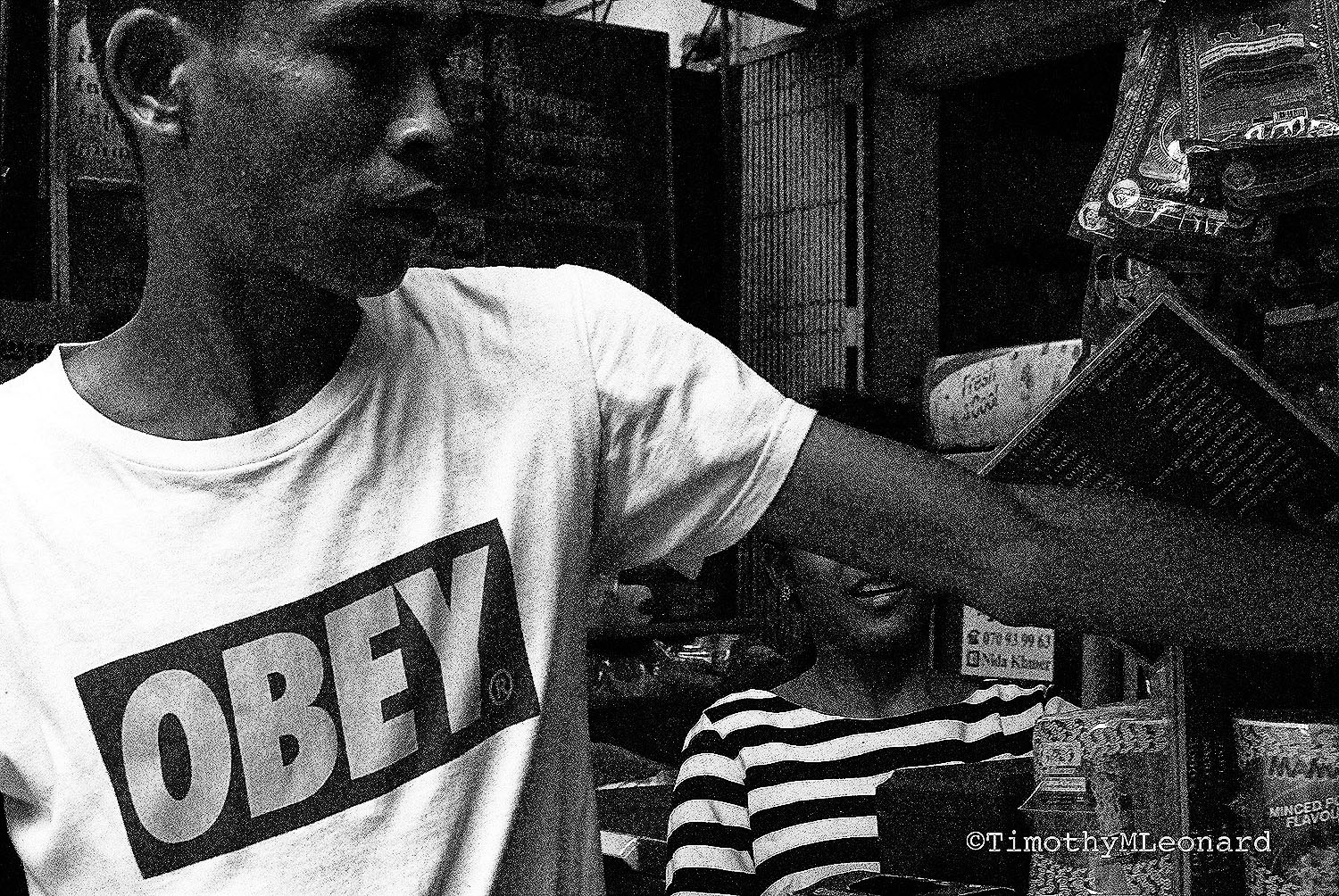
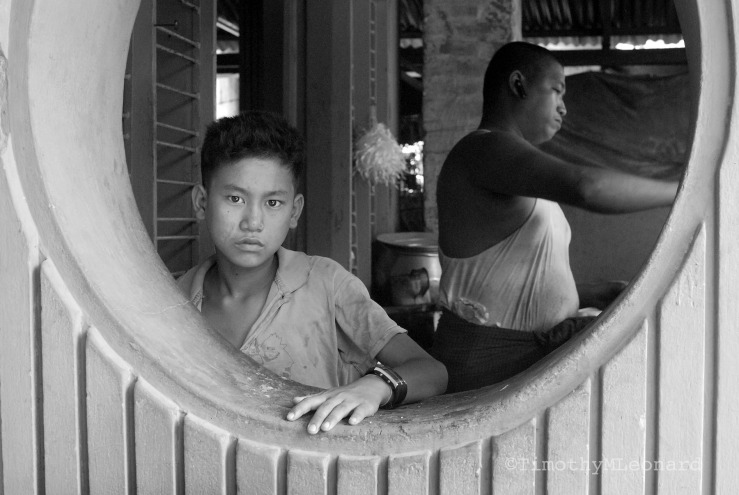
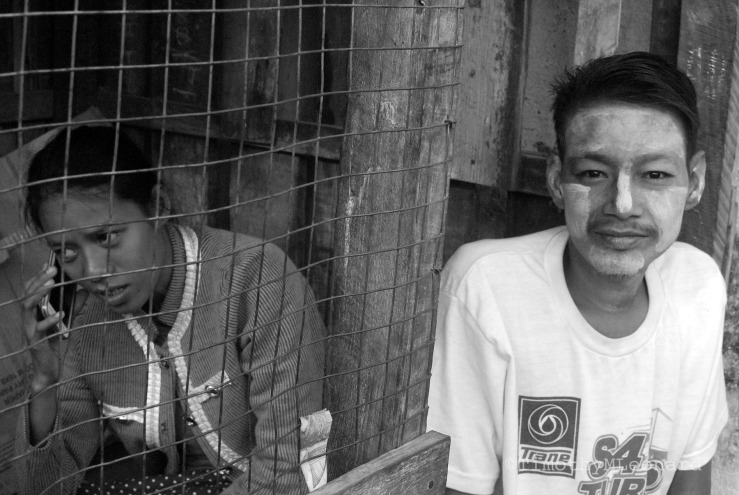






 Share Article
Share Article 